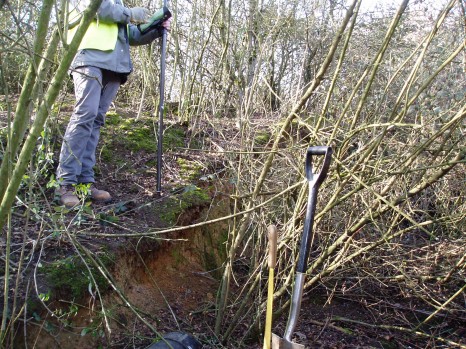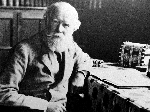Clive Gamble interviewed by Matt Pope on BBC Radio Four
Clive Gamble was interviewed by Matt Pope for the BBC Radio Four "History of Ideas". Matt is a member of the AHRC Project: Crossing the Threshold: Dynamic transformation in human societies of the Late Middle Pleistocene project.
The audio is available on the BBC Radio Four website. It was broadcast on Friday 30 Jan 2015. Clive's section begins at around 2 minutes 40s in, where he talks about the evolutionary trade off between larger brains and smaller intestines.
Continue reading →



